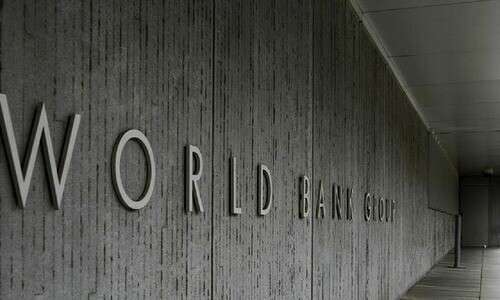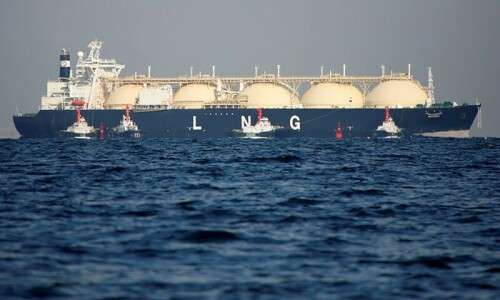Introduction
The World Bank, in partnership with the Pakistani government, is working to foster private sector participation in the country’s power distribution sector, starting with the top-performing distribution companies (Discos). This joint initiative is aimed at bringing in private investment, which is seen as essential for the long-term stability and efficiency of Pakistan’s energy distribution network. While the effort has received backing, the poor financial health of many Discos remains a significant hurdle that needs addressing for private investment to become a viable solution.
This article explores the steps being taken by the government and the World Bank to invite investment, the current state of Discos, and the challenges that lie ahead in attracting private investors.
Current State of Pakistan’s Power Distribution Sector
Struggling Discos and Financial Challenges
The distribution companies (Discos) in Pakistan, particularly those owned by the government, are struggling with significant financial deficits. According to the Asian Development Bank (ADB) report, most Discos reported losses in the fiscal year (FY) 2023. The high financial challenges stem from poor electricity collection rates, inefficiency in operations, and the increasing cost of power purchasing.
For instance, while some Discos had collection rates exceeding 90%, others reported alarmingly low recovery rates. Key companies like the Quetta Electric Supply Company (QESCO), the Sukkur Electric Power Company (SEPCO), and the Hyderabad Electric Supply Company (HESCO) had recovery rates of 36.9%, 66.5%, and 74.4%, respectively, contributing to the larger financial difficulties in the sector.
The country’s Discos cater to over 38 million customers nationwide, with residential users making up a large majority (86%), followed by commercial, industrial, and agricultural consumers. However, despite the significant customer base, the lack of financial stability and poor operational management continue to plague the sector.
Circular Debt: A Growing Concern
One of the most pressing issues facing Pakistan’s distribution sector is the growing circular debt, which results from inefficiencies in power distribution and an inability to recover the costs of electricity supply. In FY23, the combined transmission and distribution losses amounted to a staggering 16.5%, significantly higher than countries like Bangladesh (10.3%) and Nepal (12.7%), with the global average being 8%.
These operational inefficiencies, coupled with the mounting financial deficits, contributed Rs160.4 billion to the circular debt in FY23, primarily from companies like Peshawar Electric Supply Company (PESCO), Lahore Electric Supply Company (LESCO), and others. The growing circular debt severely undermines the financial sustainability of the energy sector, making it difficult to invest in necessary infrastructure improvements or even meet the operational costs of power supply.
The Role of the World Bank and Government in Attracting Private Investment
Partnering to Revitalize the Distribution Sector
The World Bank’s collaboration with the Pakistani government is designed to address these challenges and encourage private sector participation in the power distribution sector. By focusing on the most well-performing Discos, the government and World Bank aim to create a model that will later be replicated across other, underperforming distribution companies.
Private sector involvement is seen as a way to inject much-needed capital and expertise into the sector, which could help mitigate financial issues, improve operational efficiency, and ultimately reduce the burden of circular debt. However, for this to happen, several factors need to be addressed, particularly the financial health of Discos and the lack of investor confidence.
Overcoming Barriers to Private Sector Participation
Despite the potential benefits of privatizing Discos, private sector participation has faced resistance. Concerns from stakeholders include fears of job losses, increased electricity tariffs, and the possible loss of control over a key national asset. The issue of regulatory clarity and the absence of well-established tariff mechanisms also create significant concerns for investors.
Private investors have expressed reluctance due to the lack of a clear legal framework, regulatory transparency, and a predictable tariff structure. Without these critical components in place, private sector investment in the distribution sector remains uncertain.
Addressing Regulatory and Governance Issues
To attract investment, the government and the World Bank will need to address these governance and regulatory issues. Improving the legal environment for the distribution sector and establishing clear and transparent tariff mechanisms will be crucial in reassuring potential investors. Moreover, strengthening the regulatory bodies overseeing the sector will help mitigate investor concerns and encourage private sector participation.
Furthermore, the government will need to develop a framework that balances the interests of all stakeholders, including consumers, employees, and investors, ensuring that the benefits of privatization are broadly shared.
Financial Deficits and Infrastructure Challenges in Discos
High Losses and Poor Collection Efficiency
The distribution sector’s financial challenges are not just the result of poor management but also due to high electricity losses and inefficient billing systems. Pakistan’s Discos are plagued by technical and commercial losses, which lead to higher operational costs and financial shortfalls. While some Discos have shown improvement in collection rates, others remain severely underperforming.
This inefficiency in revenue collection and electricity distribution not only adds to the financial burden of the sector but also fuels the circular debt, creating a vicious cycle of financial instability that is difficult to break. This, in turn, hampers the ability of Discos to improve infrastructure, leading to outdated and unreliable systems that contribute to further inefficiencies.
Aging Infrastructure and Governance Weaknesses
In addition to the financial deficits, the power distribution sector is also hindered by aging infrastructure. Many Discos operate with outdated equipment and weak governance systems that are unable to cope with the growing demand for electricity. This leads to frequent breakdowns, reduced system reliability, and increased costs for maintenance and repairs.
Addressing these infrastructure issues is critical for the future sustainability of the distribution sector. Investments in modernizing the grid, improving transmission and distribution networks, and enhancing operational efficiency will be key to overcoming the current challenges.
The Path Forward: Solutions and Recommendations
Improving Operational Efficiency
To make the distribution sector more attractive to private investors, the government needs to prioritize improvements in operational efficiency. This includes upgrading the billing systems, enhancing collection efficiency, reducing technical losses, and modernizing the infrastructure. By doing so, the sector will become more financially viable, making it a more attractive proposition for private sector participation.
Addressing Regulatory and Legal Issues
Another essential step is to address the regulatory and legal issues that hinder private sector participation. A clear, transparent regulatory framework will help to foster investor confidence, ensuring that private companies can operate with a predictable and stable business environment. The development of a robust tariff mechanism, with safeguards for consumers, will also be crucial in making the sector more investor-friendly.
Encouraging Public-Private Partnerships
Public-private partnerships (PPPs) can play a pivotal role in revitalizing Pakistan’s distribution sector. These partnerships can bring together the expertise and resources of the private sector with the regulatory oversight and public interest focus of the government. By establishing successful PPPs in well-performing Discos, the government can create a model for expansion to other, underperforming distribution companies.
Conclusion
The collaboration between the World Bank and the Pakistani government is a positive step toward attracting private sector participation in the country’s power distribution sector. However, for this initiative to succeed, significant reforms in the sector’s financial health, infrastructure, and regulatory framework are essential. Overcoming these challenges will not only attract private investment but will also help address the growing circular debt issue, ultimately improving the efficiency and sustainability of Pakistan’s energy sector.
FAQs
1. What is the World Bank’s role in Pakistan’s power distribution sector?
The World Bank is collaborating with the Pakistani government to attract private sector investment in the power distribution sector, focusing initially on well-performing distribution companies (Discos).
2. Why are Pakistan’s Discos struggling financially?
Discos are facing financial challenges due to low collection rates, high technical losses, poor operational efficiency, and an outdated infrastructure. These factors contribute to mounting circular debt.
3. How can private sector participation help Pakistan’s power distribution sector?
Private sector participation can provide much-needed capital and expertise, helping to improve operational efficiency, reduce financial deficits, and address regulatory challenges in the sector.
4. What are the main barriers to attracting private investment in Discos?
The key barriers include the lack of regulatory clarity, concerns over job losses, potential tariff increases, and weak governance in the sector.
5. What steps are being taken to improve the financial health of Discos?
Efforts include addressing governance issues, improving collection efficiency, modernizing infrastructure, and establishing a clear regulatory framework for the sector.
ALSO READ
https://flarenews.pk/2024/12/15/whatsapp-introduces-new-shortcuts-for-easier-updates/


